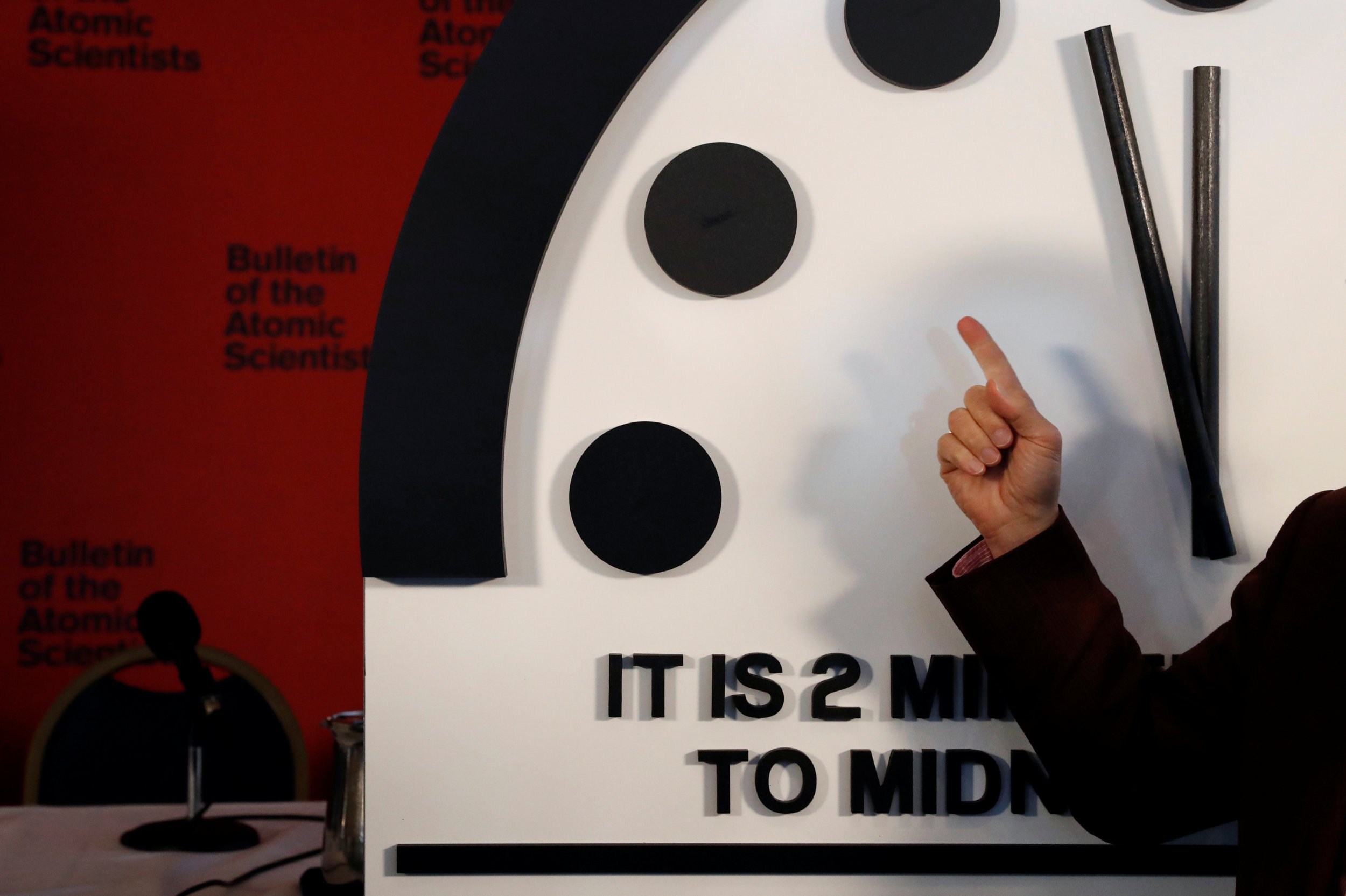
Fear of apocalypse is real, at least on the Internet. The so-called Doomsday Clock added fuel to the fire this week when atomic scientists moved the time 30 seconds closer to midnight—midnight being the dreaded doomsday from nuclear war, and more recently, climate change and the existential threats from emerging technologies. The clock now sits at two minutes to midnight.
The Bulletin of Atomic Scientists was founded in 1945 by scientists who "could not remain aloof to the consequences of their work." The same scientists who had ultimately built the atomic bomb wanted it gone, stat. So in 1947 they built the Doomsday Clock. Two years after World War II had ended, the world was seven minutes to midnight, according to the Bulletin.
Last year, the clock was set two and a half minutes to midnight. In 2018, at two minutes to midnight, the world is the closest to midnight—i.e., doomsday—since 1953, when the clock was last set this close to midnight. Around that time, the U.S. decided to pursue the hydrogen bomb.
The use of a clock as a way to convey how close doomsday is can seem somewhat dramatic, as The New Republic pointed out. Since 1947, the world has perpetually been within 20 minutes of doom. It has no scientific method behind its calculation, but it is an analogy to try to convey to people the level of danger the world is in.
But, two minutes or not, the threats behind the analogy are real.

The world is seemingly closer to doom this year now that the "world has seen the threat posed by the misuse of information technology and witnessed the vulnerability of democracies to disinformation," per the Bulletin. That reads like a giant sub-tweet for the U.S. presidential election and other countries where elections were affected by hacking, social media bots and the spread of fake news.
The ongoing feud between President Donald Trump and North Korea's Kim Jong Un has also raised fears over the risk of nuclear war, according to the Bulletin. The feud has devolved into insults at each other, including Trump who called Kim "Little Rocket Man" and Kim who called Trump "dotard," which translates literally from Korean as "old lunatic." The insults, however, are hardly child's play. They're the type of language that could result in the use of nuclear weapons, whether "intentionally or because of miscalculation." "Hyperbolic rhetoric and other provocative actions by both sides have increased the possibility of nuclear war by accident or miscalculation," the Bulletin wrote.

Nuclear war would be the most immediately devastating event, but there's another threat the Bulletin highlighted as well. The insufficient response to climate change further threatens humanity in a myriad of ways, but the Bulletin noted extreme hurricanes, heat waves, wildfires, drought, and sea level rise in particular. Climate change may appear to be a more abstract, distant problem—but another recent report warned that the threat of extreme weather poses a greater threat than even nuclear weapons, since that survey found extreme weather to be more likely than nuclear war.
The rising global risk of emerging technologies was another key factor. The public has lost trust in political institutions, media, science and facts, according to the Bulletin. The announcement tied the distrust and spread of misinformation to looming threat of nuclear weapons and climate change—as an informed public is crucial to push the policies across the globe to address the problems that are necessary to "turn back the Clock."
Uncommon Knowledge
Newsweek is committed to challenging conventional wisdom and finding connections in the search for common ground.
Newsweek is committed to challenging conventional wisdom and finding connections in the search for common ground.
About the writer
Sydney Pereira is a science writer, focusing on the environment and climate. You can reach her at s.pereira@newsweekgroup.com.





